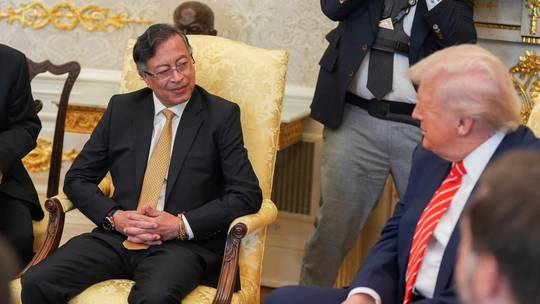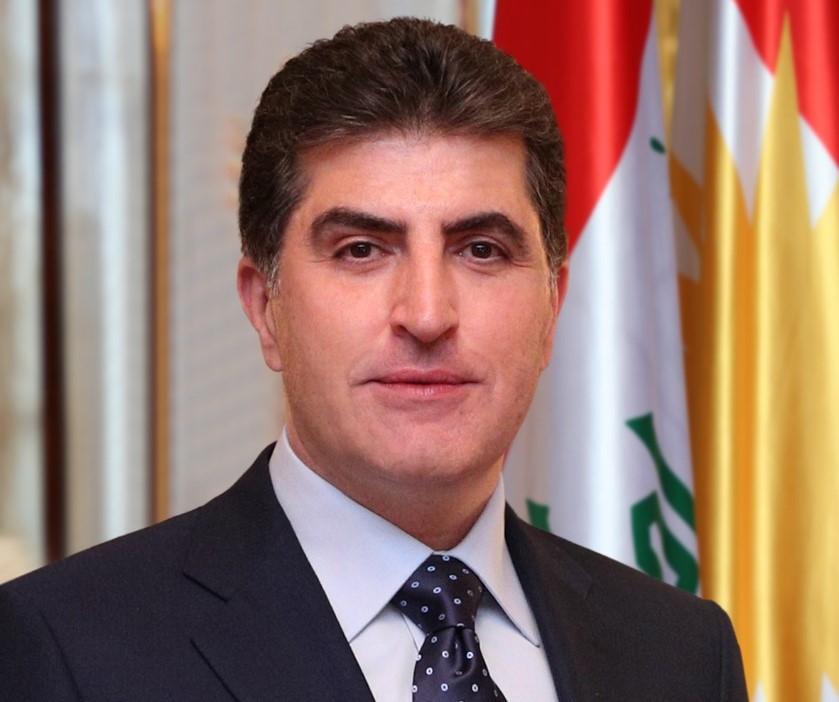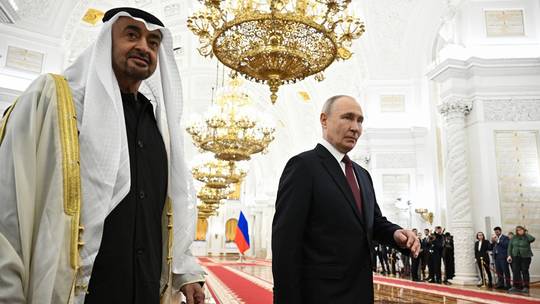Field Marshal Lord Guthrie of Craigiebank, Chief of the Defence Staff and Blair confidant
‘Probably the last British officer to have had a spear thrown at him in anger’, he became a vocal critic of defence ‘penny-pinching’

Field Marshal Lord Guthrie of Craigiebank, who has died aged 86, was widely regarded as a particularly astute and successful head of the Army and later of the armed forces; however, his willingness to engage in politics, and to make his opinions known publicly, contributed to increasing tensions during his tenure between the military and Whitehall.
As Chief of the General Staff (CGS) from 1994, Guthrie advised John Major’s government during the Bosnian conflict. The “Buggins’s turn” principle of rotating the office through the three services meant that Guthrie did not expect to succeed his fellow soldier Peter Inge as Chief of the Defence Staff (CDS), but he so impressed the Defence Secretary, Michael Portillo, that he was appointed to the post in 1997.
A month later, Labour won power. Guthrie became notably close to the new Prime Minister, Tony Blair, and oversaw two triumphs for the new doctrine of liberal interventionism. In 1999, he ordered British forces to take part in the defence of Kosovo against Serb aggression, and the following year they helped to suppress civil war in Sierra Leone.
As a former member of the SAS and, in his own words, “probably the last British officer to have had a spear thrown at him in anger”, Guthrie had a reputation for toughness and independent-mindedness. His avuncular relationship with Blair, which continued after Guthrie’s retirement, therefore dismayed some, who saw his ready charm as no more than a mask for his personal ambition and accused him of having become one of “Tony’s cronies”.
Guthrie’s view was that it was vital for the armed forces that he had the Prime Minister’s confidence. This was especially important in view of his frequent battles as CDS with the Treasury. During one row with the Chancellor, Gordon Brown, he told him that he believed he had no real interest in military matters, and later claimed that the only defence briefing that Brown ever attended was on the future of Rosyth dockyard, which was in his constituency.
Matters came to a head during the Strategic Defence Review (SDR) in 1998. Guthrie afterwards revealed that he had come “within a couple of hours” of resigning when the Treasury insisted that the armed forces find more savings. Although he got his own way on that occasion, over the next decade hostility between the two institutions became more pronounced.
Guthrie had always been ready to brief the press with his agenda, often covertly, and in 2007 he led calls in the newspapers for better treatment of the services under the so-called “military covenant”. Guthrie blamed under-funding for a lack of equipment such as body armour and helicopters, which he believed might have saved lives in Iraq and Afghanistan. Yet even after he had stepped down as CDS in 2001, he had remained one of Blair’s key advisers, and had approved of the launching of both campaigns in the wake of the 9/11 attacks.
The long wars which followed proved to be far more testing than the brief interventions that had gone before. Indeed, the basis of the SDR itself had been that the Army should not have to fight on two fronts for more than six months. Guthrie admitted in 2007 that, with hindsight, it was also wrong to have invaded Iraq on the basis of intelligence which appeared to show that Saddam Hussein was manufacturing weapons of mass destruction.
By the time that Brown had succeeded Blair as Prime Minister, Guthrie had become a vocal critic of the Government’s defence policy. He accused it of failing to look after soldiers and their families properly, and criticised the “penny-pinching ways” that he felt were preventing the Army from succeeding in the missions it had been given. Despite such outspokenness, he remained a soldier with whom politicians were comfortable, and in 2009 David Cameron, then Leader of the Opposition, made him a foreign policy adviser.
Charles Ronald Llewelyn Guthrie was born on November 17 1938, to Ronald Guthrie, a businessman, and his wife Nina, née Llewelyn. Educated at Harrow, he was a schoolboy international at rugby and subsequently played for the Army.
After Sandhurst, in 1959 he was commissioned into the Welsh Guards and posted to the 1st Battalion (1 WG) in BAOR. He returned to England with the Battalion and became adjutant. During this time, he had a walk-on part at Covent Garden in a production of Moses and Aaron and was a keen opera-goer for the rest of his life.
In 1966, Guthrie joined “G” Squadron SAS and served in a series of small conflicts in Aden, Oman, Malaysia and East Africa before returning to 1 WG as a company commander. He became military assistant to the Chief of the General Staff in 1973 and brigade major for the Household Division in 1976.
Command of 1 WG in Berlin followed. Guthrie maintained that there was no point in having an exercise unless the men remembered it. When the Battalion swam the River Havel, the starting point was close to the Berlin naturist beach and the exit point was no great distance from the city’s main sewer.
A winter tour followed in the bleak, countryside of South Armagh. Guthrie was appointed OBE at the end of it. The citation paid tribute to his drive, inventiveness and inspiration in bringing his men to the pitch in their training and in maintaining the highest standards needed to operate successfully against a cunning and unscrupulous enemy.
After a move to the MOD as a colonel on the General Staff for Military Operations, he commanded 4th Armoured Brigade and was then made chief of staff for 1st British Corps in Bielefeld.
Promotion to major-general followed his appointment as GOC Commanding North-East District and Commander 2nd Infantry Division. He returned to the MOD in 1987 as Assistant Chief of the General Staff and after commanding 1st British Corps, in 1992 he was promoted to full general on being made Commander British Army of the Rhine and Northern Army Group.
After retiring from the Army in 2001, Guthrie served as a crossbench member of the House of Lords until 2020. He was also a non-executive director of a number of companies including NM Rothschild & Sons and took an active part in a number of charities.
Guthrie was promoted to Field Marshal in 2012. He was ADC General to the Queen from 1993 to 2001; Colonel Commandant Intelligence Corps from 1986 to 1995; Colonel of the Life Guards and Gold Stick to the Queen from 1999 to 2019; and from 2000 to 2009 Colonel Commandant SAS Regiment. He was a Knight of Malta and a Freeman of the City of London.
Charles Guthrie was appointed LVO in 1977 and OBE in 1980. Knighted in 1990, he was appointed GCB in 1994. He listed his recreations as tennis, opera and travel. In 2007 he published Just War, a monograph co-written with Sir Michael Quinlan on the ethics of conflict.
He married, in 1971, Catherine (Kate) Worrall, the daughter of a Colonel in the Coldstream Guards, who was appointed OBE in 2010 for her own work with SSAFA. Lady Guthrie died in 2022; their two sons survive him.
Lord Guthrie, born November 17 1938, death announced September 18 2025










/file/attachments/orphans/GettyImages-173171038_666041.jpg)












/file/attachments/orphans/IMG_9103_429753.jpeg)





























